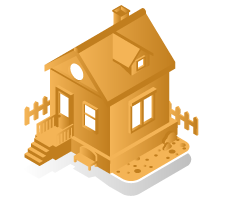
Sign up With Verisure, Ireland’s Leading Alarm Provider With Selectra Today!

In today's world, technology is changing how we live. Smart homes are a big part of this change. They bring a lot of good things, like making us safer and using energy better. In this article, we'll talk about all the good stuff smart homes do. We'll also help people who are new to this idea, giving them a step-by-step guide to starting with smart home things. And we'll talk about how smart homes can be safe and how they help the environment too.
Sign up to Verisure Alarms with Selectra Today!
Secure Your Home's Security with Verisure and Selectra
Sign up to Verisure Alarms with Selectra Today!
We're currently closed but please leave us your number and we'll give you a free call as soon as we're open!
A smart home is a house that uses technology to make things easier and more convenient. In a smart home, different devices like lights, Netatmo thermostats, and even doorbells can talk to each other and be controlled using a smartphone or your voice. This helps you do things like turn off lights when you're not home, adjust the temperature from far away, or even see who's at your door when you're not there. Smart homes make everyday tasks simpler and more connected.
Frequently found in a regular smart home in Ireland are appliances like indoor lighting and heating. However, these homes can also incorporate advanced technologies such as solar energy systems, virtual assistants, intelligent vacuum cleaners, refrigerators, washing machines, and even clever kettles!
A "smart home" gets its intelligence from the technology that connects and controls different devices, making them work together for convenience and efficiency. This allows you to manage things like lights, appliances, and security systems using your smartphone or voice commands.
For example, in a smart home, there will be a security system equipped with motion and contact sensors, cameras, video doorbells, smart locks links to a monitoring service and local authorities, as well as home heating, smoke, and water leak sensors. Also, the home will have various features to detect and prevent break-ins, such as lights that turn on when triggered, alarm sirens, and visible warning signs.
By 2027, it is projected that the Smart Home market will see around 708.6k active households.
~ Statista
The advantages of a smart home are numerous and impactful. Smart homes offer integrated systems that allow you to control various devices remotely, creating a seamless and interconnected living environment. Overall, smart homes make daily life more convenient, comfortable, and connected. Below-listed are top 5 advantages of having a smart home:
Smart homes offer advanced security features such as remote monitoring, motion sensors, and video doorbells, helping you keep your home safe and secure even when you're not there.
With smart thermostats like Nest thermostat, lighting, and appliances, you can manage and optimise energy consumption, leading to reduced energy bills, carbon footprint and an eco-friendlier lifestyle.
Control your home's devices and systems remotely through smartphones or voice commands, making daily tasks more convenient and saving you time and effort.
Smart homes allow you to personalise settings to match your preferences, creating a comfortable and tailored living environment for you and your family.
Through energy efficiency, automated schedules, and optimised resource usage, smart homes can lead to long-term cost savings in terms of energy bills and maintenance expenses.
Sign up to Verisure Alarms with Selectra Today!
Secure Your Home's Security with Verisure and Selectra
Sign up to Verisure Alarms with Selectra Today!
We're currently closed but please leave us your number and we'll give you a free call as soon as we're open!
A smart home is equipped with various technologies that allow for increased automation, control, and convenience. Here are some common features of a smart home:
Smart homes offer the ability to automate tasks and routines, such as adjusting lighting, temperature, and security settings based on predefined schedules or triggers.
You can control and monitor your home's devices and systems remotely using smartphones, tablets, or computers, allowing you to adjust settings even when you're not at home.
Many smart homes integrate with voice assistants like Amazon Alexa, Google Assistant, or Apple Siri, enabling you to control devices and ask for information using voice commands.
Smart lighting systems let you control the brightness, colour, and scheduling of lights. Some systems can adjust lighting based on natural light levels or your daily routines.
Smart thermostats can learn your preferences and adjust the temperature based on your schedule. They can also be controlled remotely, potentially saving energy and money.
Smart homes often include security cameras, doorbell cameras, and motion sensors that send alerts and footage to your devices. Some systems even offer facial recognition and two-way communication.
These locks can be remotely controlled, allowing you to lock or unlock doors using your smartphone. You can also grant temporary access to guests or service providers.
Smart TVs, speakers, and entertainment systems can be integrated with your smart home, allowing you to stream content, control volume, and manage other settings with your voice or devices.
Some appliances, like refrigerators, washing machines, and ovens, can be connected to the internet for remote monitoring and control. They might also offer features like inventory tracking and recipe suggestions.
Smart homes can help you monitor and optimise energy consumption. This includes controlling lights and thermostats based on occupancy, as well as providing insights into your energy usage patterns.
Motorised window coverings can be programmed to open and close at specific times or in response to light levels, temperature, or user preferences.
Smart irrigation systems can adjust watering schedules based on weather forecasts and soil moisture levels, helping you conserve water in your garden.
Some smart homes have devices that monitor air quality, humidity levels, and even sleep patterns, providing insights into your living environment's impact on your health.
A key feature of a smart home is its ability to integrate various devices and systems from different manufacturers, ensuring they can communicate and work together seamlessly.
Smart home devices can send alerts and notifications to your devices in case of unusual events, such as a water leak, smoke detection, or a security breach.
Before diving into the realm of smart home systems, several crucial factors should be considered to ensure a seamless and satisfying experience. First and foremost, consider the compatibility and integration of the proposed smart home technology with your existing devices and systems. Ensuring a smooth interaction between various components can help you avoid frustration and technical obstacles down the line.
Secondly, think about the scalability of your smart home setup. Will it be able to accommodate additional devices and technologies as your needs evolve? Also, with the increasing connectivity of smart home systems, prioritising privacy and security is crucial. Consider the level of maintenance and support provided by the service provider.
Finally, think about the aesthetic impact of these technologies on your living space.
The Internet of Things (IoT) plays a pivotal role in shaping the landscape of smart homes in Ireland. IoT serves as the foundation for creating an interconnected ecosystem where devices collaborate to enhance comfort, convenience, and efficiency.
Smart homes make use of the wireless protocols to interact with each other and with users. Common protocols such as Wi-Fi and Bluetooth enable the exchange of information among devices. These protocols allow for flexible installations, making it easier for homeowners to integrate various devices regardless of their manufacturers.
At the same time, as smart homes collect and transmit sensitive information, safeguarding this data from unauthorised access is critical. Homeowners must be aware of potential vulnerabilities in their network, ensuring that strong passwords, regular firmware updates, and robust encryption methods are in place.
The Irish smart home market is witnessing an evolution of advancements and innovations hold promise for elevated living standards.
The future of smart homes in Ireland is bright, with technology poised to make homes more energy-efficient, secure, and adaptable to the needs of their owners.
Smart homes are at the forefront of promoting sustainability. These advanced spaces optimise energy consumption through real-time monitoring, adjusting lighting and climate systems based on occupancy. Energy-efficient appliances and renewable energy sources further reduce ecological footprints. By encouraging responsible consumption and minimising waste, smart homes actively contribute to a greener future.
Find out more about our offers from energy, broadband and waste collection providers!
The services and products mentioned on this website may only represent a small selection of the options available to you. Selectra encourages you to carry out your own research and seek advice if necessary before making any decisions. We may receive commission from selected partner providers on sales of some products and/or services mentioned within this website. Our website is free to use, and the commission we receive does not affect our opinion or the information we provide.
